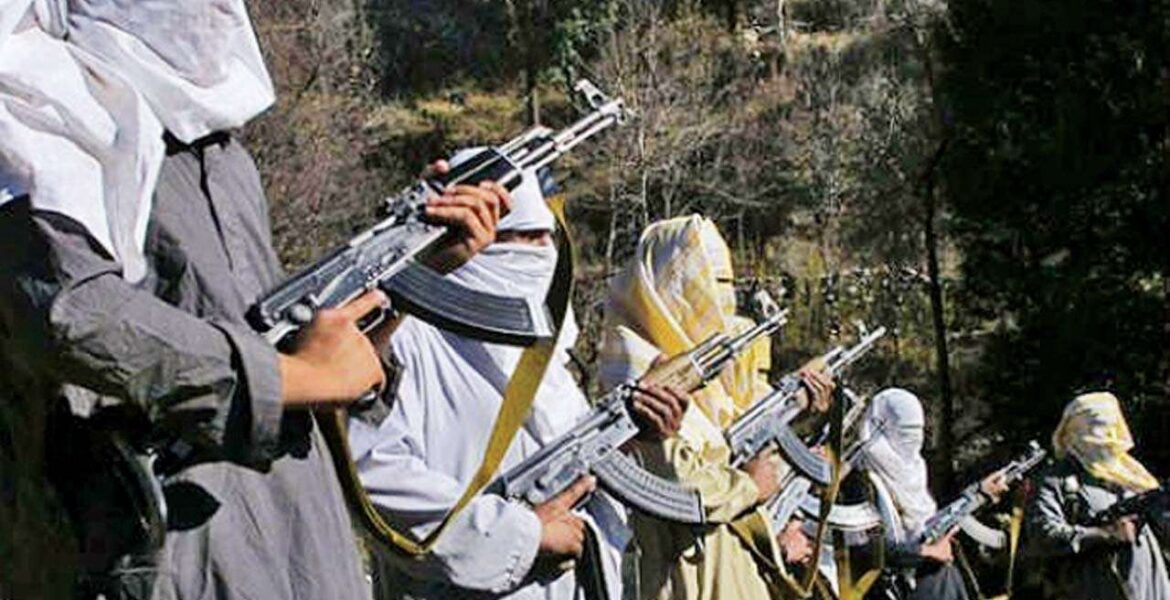US citizens have been warned about traveling to high-risk areas in Pakistan due to terrorism and sectarian violence.
In a Level 3 travel advisory issued last Thursday, the US has asked its citizens not to travel to Balochistan province and Khyber Pakhtunkhwa (KPK) province, including the former Federally Administered Tribal Areas (FATA), due to terrorism and kidnapping.
It recommended that the immediate vicinity of the Line of Control is risky due to terrorism and the potential for armed conflict.
Cautioning its citizens that the terrorist groups continue plotting attacks in Pakistan, the advisory said that terrorists may attack with little or no warning, targeting transportation hubs, markets, shopping malls, military installations, airports, universities, tourist locations, schools, hospitals, places of worship, and government facilities.
Flagging up that terrorists have targeted US diplomats and diplomatic facilities in the past, it advised the citizens to remain vigilant of their surroundings and local events.
“A local history of terrorism and ongoing ideological aspirations of violence by extremist elements have led to indiscriminate attacks on civilian as well as local military and police targets. Terrorist attacks continue to happen across Pakistan, with most occurring in Balochistan and KPK, including the former FATA. Large-scale terrorist attacks have resulted in numerous casualties,” it added.
The US government further noted that it has a “limited ability to provide emergency services to its citizens in Pakistan” due to the security environment. “Travel by US government personnel within Pakistan is restricted, and additional restrictions on movements by US government personnel outside of US diplomatic facilities may occur at any time, depending on local circumstances and security conditions, which can change suddenly.”
The US Consulate General in Peshawar is unable to provide any consular services to US citizens, the advisory said.
The advisory asked citizens to exercise a high degree of caution in Pakistan especially in Balochistan due to the unpredictable security situation. “Do not travel to Balochistan province. Active terrorist groups, an active separatist movement, sectarian conflicts, and deadly terrorist attacks against civilians, government offices, and security forces destabilize the province, including all major cities. In 2019, several bombings occurred in Balochistan province that resulted in injuries and deaths.”
Over travel to KPK province, it read, “Do not travel to KPK province, which includes the former FATA. Active terrorist and insurgent groups routinely conduct attacks against civilians, non-governmental organizations (NGOs), government offices, and security forces. These groups historically have not discriminated between government officials and civilians. Assassination and kidnapping attempts are common, including the targeting of polio eradication teams.”
Meanwhile, Pakistan has always had a history of sectarian violence against its minorities like Hindus, Sikhs, Christians and Shia Muslims in a Sunni Muslim majority country. But now a new kind of sectarianism has reared its head in the country which is threatening its very existence.
This new sectarianism comes from the rise of Islamic State in Pakistan and increasing influence of a violent movement called Tehreek-e-Labbaik Pakistan or 'Labaik'. The Labaik draws its cadre from the majority community of Barelvis. This is different from the Deobandis who had earlier driven sectarianist violence in Pakistan.
Between the Labaiks and the Deobandis, sectarian violence has now spread to every group in Pakistan including the majority. Especially vulnerable of course are the minorities who are consistently targeted for assault and murder by vigilante groups.
Often these mobs who attack minorities use the fake pretense of 'blasphemy'. This is particularly used with deadly impact by the Labaik mobs including in a horrific incident of a lynching of a Sri Lankan factory manager falsely accused of blasphemy in December 2021.
Ever since General Zia ul-Haq's military government started an overt Islamisation of Pakistan, and the anti-Soviet jihad began in Afghanistan, radical Sunni groups affiliated to Deobandis like the Sipah-e-Sahaba Pakistan (SSP) and its offshoot Lashkar-e-Jhangvi have been spreading violence in Pakistan especially targetting minorities and determined with to target Shias. But many of these operated through underground sleeper cells.
The new sectarian groups like the Labaik are different because they operate openly and have wide support from a majority group of Pakistanis. The Labaik also have their own political party and therefore they are not only a violent sectarian force but also a political force.
Alongside the Labaik, there is also the relatively new local branch of the Islamic State called the Islamic State Khorasan Province (ISKP) which has consistently taken on Pakistani security forces. The Pakistani security forces and its political apparatus has consistently struggled to control these groups. The Labaik especially is able to regularly gather enough mobs to bring major cities including Lahore and the capital Islamabad to a standstill with their violent protests.
These sectarian groups are spreading unprecedented violence in Pakistani society and their growing political influence and public support is further destabilizing the country.


